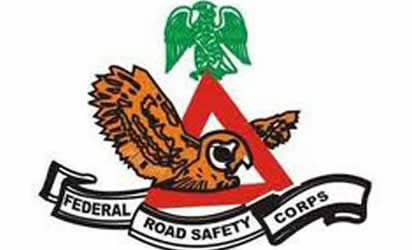Unlike other agencies of government, the establishment of FRSC was in conformity with the lead agency concept recommended by the United nations and World Health Organization (WHO) that member nations should dedicate an agency of government to lead in coordinating road safety management as a best practice to combat the scourge of death and injuries from RTC. Prior to the establishment of the FRSC in 1988, the WHO had adjudged Nigeria, the second only behind Ethiopia, as the most dangerous country in the world to drive a motor vehicle. In its three decades of unbroken service to humanity as a lead agency in traffic and safety management, FRSC has recorded tremendous achievements in the area of Traffic Engineering, Road Safety Administration, Traffic Management and Crash reduction.
The FRSC has now come of age after going through good times and tides. In its 30 years journey, it recorded for instance, a commendable 62.4 per cent reduction in crash from 40,881 in 1976 to 25,792 within its first operational year alone. In this regard, it is instructive to state that the Corps has doggedly fought RTC from the unacceptable 40,881 of 1976 down to 5,993 in 2016 and 4,418 in 2017. The statistics above shows that the Corps is gaining grounds accordingly. To this end, through the use of state of the art information technology facilities, the Corps has been able to enhance its operational capacity aimed at promoting public safety and security. In compliance with the ease of doing business, the Corps has over three decades designed and operated 24 web applications for its operational activities so as to create an accessible platform for the general public. Some of these applications cover, the Uniform Licensing scheme, under which is the ONE DRIVER ONE RECORD which enables FRSC track and match records of drivers with their drivers licence, vehicle number plate, traffic offences and others in a single view.
The introduction of the toll-free 122 emergency number and a 24 hours call center was made to reduce response time for crash victims; a single step that has reduced emergency response time from 50 minutes to 15 minutes, thereby decreasing the number of fatalities in crash situations. Again, the introduction of a verification portal for driver’s licence and number plates, the introduction of the Road Transport Safety Standardisation Scheme (RTSSS) for uniformity and harmonization of fleet operators in the country, the Driving School Standardisation Scheme (DSSP), the introduction of the speed limiting device whose enforcement began on 1st February, 2017, and the vehicle tracking system, among others, are policies formulated and implemented to fight road traffic crash in the country to extinction.
Again, it is noteworthy to look at the direction of the present leadership of Dr. Boboye Oyememi’s swift response to the incessant abuse of traffic rules which led to the putting together of Operation Cobra to address certain life-threatening traffic-related offences like dangerous driving, route violation, use of phone while driving, traffic light violation and drunk driving. This singular step became instrumental to the decline in crash rate in 2017. According to the Corps Marshal, offenders apprehended by the Operation Cobra squad are usually referred to a government health facility for Emotional Stability Test and so far, over 200 offenders have been referred to different health facilities for examination. As a performance-driven organization with clearly set measurable Key performance Indicators, FRSC is today the only law enforcement organisation in Nigeria certified by the International Standard Organization. Considering that road transport sector in Nigeria accounts for over 90 per cent of passengers and freight movement, this exerts undue pressure on the FRSC in discharging its cardinal responsibilities. In view of the foregoing, the Corps has over the years embarked on several reforms which include but not limited to the following: development of a national road safety strategy road map, improved operational efficiency, enhanced regulatory environment, accelerated response capability to situations that needed immediate actions. The Corps therefore defined the following paths which were in tandem with UN decade of action as well as the mantra of functional 21st century organization by chatting a path to meet the Accra declaration of 50 per cent reduction in fatality by 2015, achieve UN decade of action on road Safety of 50 per cent fatality reduction by 2020, and place Nigerian roads within the league of 20 global safest roads by 2020.
To achieve the stated targets, the Corps has developed transformational initiatives focused on People, Processes and Technology (PPT). That is why, today, not only does its staff pride as the most disciplined but the Corps stands as the best Information Technology (IT) driven organisation in Nigeria with its robust data base and over 95 percentage digitalized administrative and operational procedures. The Corps under different governmental and administrative leaderships, within has proven to allay the menace of road traffic crashes in the past three decades. Achievements of such were based on many pillars and strict implementation of its Corporate Strategic goals. With its National headquarters, 12 Zonal Commands, 37 Sector Commands, over 201 Unit Commands, 209 outposts, 27 road side clinics, 41 emergency Ambulance Points, over 214 drivers license centers/ work stations, 3 number plate plants, a drivers license production print farm, an academy and a training school, 645 patrol vehicles, 150 admin vehicles, 106 ambulances, 22 Tow trucks and 204 bikes; the Corps has been able to carry out its statutory functions of creating a safer motoring environment through full deployment and utilization of its workforce ranging from, its 21,000 regular marshals, 20,768 special marshals with the President of the Federal Republic as its Patron, and 23,660 road Safety clubs.
It is therefore instructive to state that the Corps in recent times has noted that road safety is a shared responsibility; hence in the era of the present Corps Marshal Dr. Boboye Oyeyemi, establishment of State Traffic Agencies was encouraged to further complement the function of the FRSC within the states. The Corps also embarks in consultation with stakeholders who have become more involved through the mechanism of the special marshals, celebrity SpecialMarshals and road Safety clubs. The deployment of FRSC personnel to Tank Farms has to a large degree, dwindled the rate of crashes associated with articulate vehicles, particularly tankers carrying petroleum products.
Kazeem is Corps Public Education Officer, FRSC
ALSO READ: Nigeria increasingly losing breadwinners to road accidents —FRSC report
WATCH TOP VIDEOS FROM NIGERIAN TRIBUNE TV
- Relationship Hangout: Public vs Private Proposals – Which Truly Wins in Love?
- “No” Is a Complete Sentence: Why You Should Stop Feeling Guilty
- Relationship Hangout: Friendship Talk 2025 – How to Be a Good Friend & Big Questions on Friendship
- Police Overpower Armed Robbers in Ibadan After Fierce Struggle





